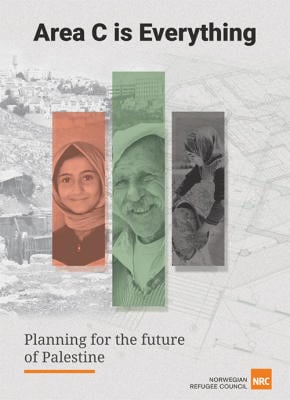
Three decades since the Palestinians and Israel signed the ‘Oslo Accords’, whose 30-year anniversary coincides on September 13, Israel is systematically excluding Palestinian presence and development in the occupied West Bank. An alternative Palestinian-led rights-based planning approach is possible but will require international pressure, according to new research by the Norwegian Refugee Council (NRC).
NRC proposes establishing an autonomous building process stewarded by Palestinians for the benefit of Palestinians. This would allow Palestinians greater control over their territory, prioritizing the construction of schools, homes, livelihoods, and services instead of solely relying on humanitarian aid to meet their basic needs.
“The only practical solution to this burgeoning disaster is an alternative, rights-based planning system,” said NRC Secretary General Jan Egeland. “Delivery of a fair system for Palestinians in the occupied territory will not be easy, but it is possible. It requires urgent, brave, and principled diplomatic action, including by Israel’s allies, and an accountability plan that safeguards Palestinians’ human rights.”
The unlawful planning regime imposed by Israel in what is known as ‘Area C’, which comprises some 60 percent of the occupied West Bank, creates an impossible living environment for Palestinians. The regime displaces Palestinians, unlawfully annexes West Bank territory, and prevents any prospect of a functioning Palestinian state, while 99 percent of Palestinian building permit applications in Area C are rejected by Israel.
“The settlements expand and disconnect us from neighboring [Palestinian] communities,” Mohammad, from Beit Sakariya in Area C, told NRC. “As the settlements get bigger, our communities get smaller. If it stays like this, we are going to hell.”
Under the Oslo Accords, Israel was to transfer administrative control of ‘Area C’ to the Palestinian Authority (PA) over a period of 18 months, concluding in 1998. More than twenty-five years on, however, the transfer has not happened.
“Today, Palestinians in the occupied West Bank live in overcrowded and underserved hamlets, from which they can be forcibly displaced at any moment. They can’t build a home for their families or a school for their children because Israel has installed a blanket ban on construction, while continuously expanding its own illegal settlements,” said Egeland.
NRC urged donor states, the UN, and humanitarian agencies to harness their combined political leverage to enforce international law, which prohibits Israel from annexing Palestinian territory, depriving Palestinians of development possibilities and forcibly displacing Palestinians from areas it occupies.
The research on the Area C planning regime was undertaken on behalf of NRC by former UN Special Rapporteur Leilani Farha and the proposed planning system is based on a legal framework that merges international humanitarian law and international human rights law.
It will not end the occupation, said NRC, but if fully implemented can create an environment in which Palestinian rights and the viability of a two-state solution are protected.





